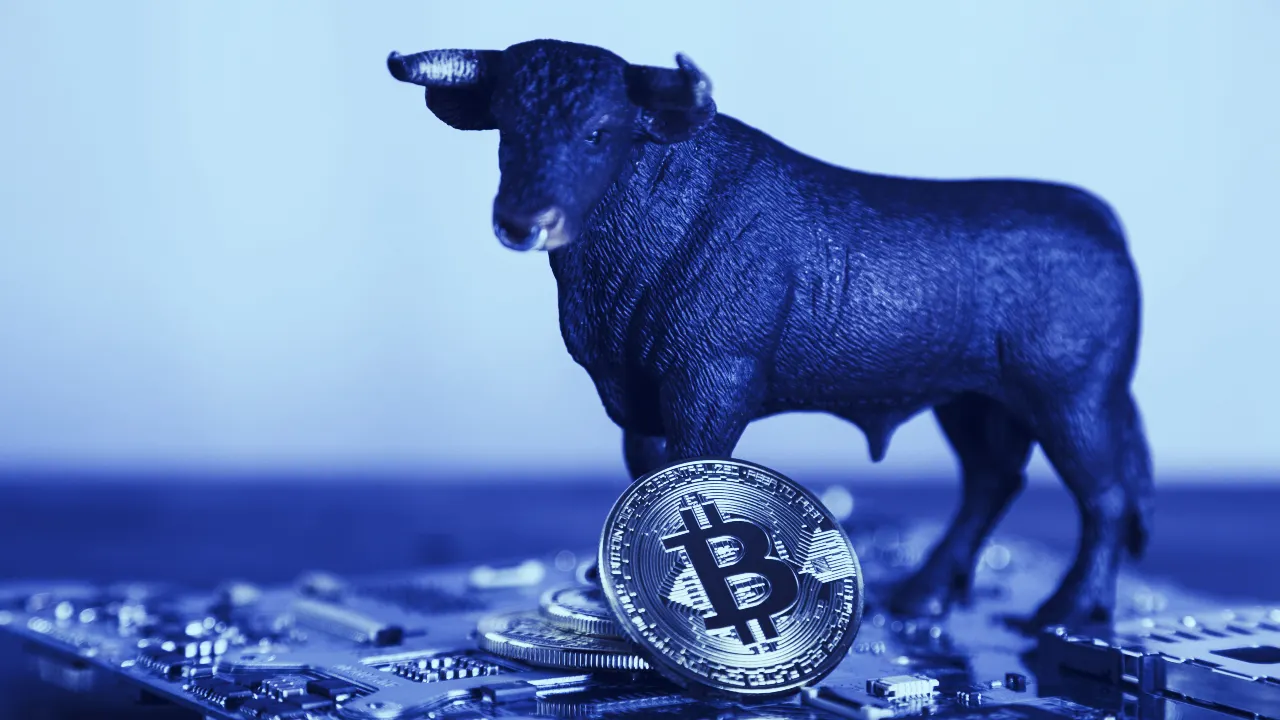In brief
- Bull Bitcoin has lowered fees and increased buying thresholds across its services.
- CEO Francis Pouliot says the forthcoming Bitcoin Halving could bring a surge in demand.
- The reaction from central banks around the world to the coronavirus crisis may also lead more investors to Bitcoin, he said.
Bull Bitcoin, the “Bitcoin Maximalist” company which forecasts the “inevitable collapse of Canada’s monetary system,” announced in a blog post that it has reduced fees and changed thresholds for its Bitcoin exchange and bill payment services.
Founder and CEO Francis Pouliot told Decrypt that March was the company’s busiest month ever, with a record number of signups and the largest amount of Bitcoin purchases in the firm’s history. Now, with the Bitcoin halving just weeks away and interest in the event on the rise, Bull Bitcoin is preparing to capitalize on an anticipated increase in demand.
The company today removed all fees on electronic and wire transfers, as well as fees for debit payments. It also waived flat fees on all transactions and purchases. For Bylls, a service for Canadians to pay bills with Bitcoin, the company reduced fees by 50%.
— Bull Bitcoin 🇨🇦 (@BullBitcoin_) April 15, 2020
As for thresholds for buying and selling Bitcoin, the company increased limits to $10,000,000. It also removed or simplified proof-of-residence and know-your-customer (KYC) requirements. Pouliot said that, ironically, he expects the forthcoming changes to Canadian money laundering rules, which come into effect in June, to allow the company to relax these requirements.
— Bull Bitcoin 🇨🇦 (@BullBitcoin_) April 15, 2020
Despite cutting fees across its services, Bull Bitcoin still expects to make a pretty penny from its users: ”Depending on market volatility, the price at which we sell you Bitcoin will be between 1.3% and 1.8% more than the price we paid for,” the company said in a blog post.
As for how this sets Bull Bitcoin up for “the halving,” when Bitcoin’s mining rewards are reduced by half sometime next month, he expects increased scarcity will make Bitcoin and his services more attractive. “Surprisingly, not many people are aware that the production of new bitcoins actually decreases over time,” Pouliot said. “Having reduced the fees and increased the limits definitely puts us in a good position for the influx of new users.”
But the economic crisis brought on by the coronavirus pandemic is touching all corners of the financial world, and Bitcoin and crypto are no exception. Pouliot said he expects to see an increase in bill payments with Bitcoin from his users, as people lose income and savings from layoffs. “To some degree, the COVID crisis may have inadvertent effects simply because people will have less disposable income to invest in Bitcoin,” he said. “Bitcoin was their safety net, and unfortunately for them they don't have a choice but to use it now.”
Money printer go brrr
On the other hand, the unprecedented money-printing spree that governments around the world are currently undergoing in an effort to bail out businesses and provide relief to citizens, is good for Bitcoin, said Pouliot.
“One thing is for sure, the dramatic increase in the creation of money by central banks is giving a huge boost of intellectual credibility to the Bitcoin narrative,” he said. “Many investors that didn't buy into the ideological argument of ‘digital gold,’ particularly institutional investors, are now starting to understand the fundamental value proposition of scarcity and are now looking beyond payments and smart contracts.”
Bull Bitcoin is on a mission to “accelerate fiat bleed” and push Bitcoin adoption in Canada. Earlier this month, the company launched a payment voucher called Liquid Canadian Dollars (L-CAD) on Blockstream’s Liquid Network, for merchants to settle payments denominated in real Canadian Dollars, but which force holders back to Bitcoin for its underlying value.
Although Pouliot and Bull Bitcoin are trying to give Canadian’s more reasons to buy Bitcoin, under the current market conditions, it “basically sells itself,” he said.

